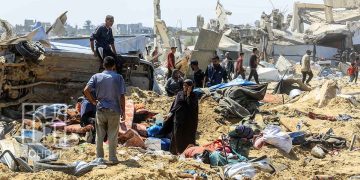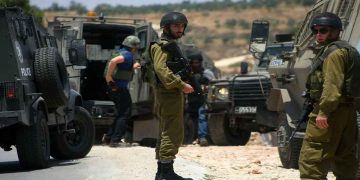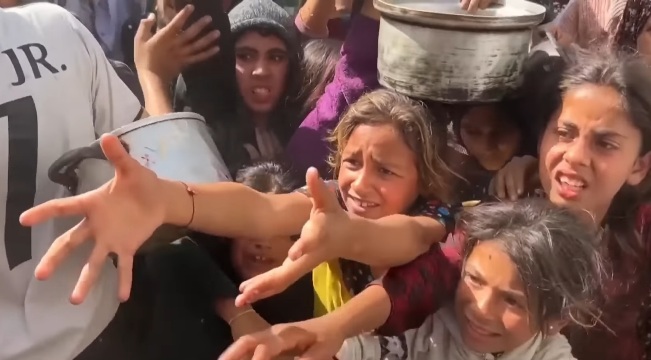Death in the Gaza Strip does not come from bombardment alone. Hunger is taking lives, medicine is unavailable, and aid is being deliberately blocked. As the siege continues, life in Gaza has become a daily nightmare threatening over two million people.
In this context, Louise Wateridge, spokesperson for the United Nations Relief and Works Agency (UNRWA), stated that “hunger in Gaza is just one part of the horrors” civilians are enduring. She noted that food, medical, and educational aid is fully stocked in the agency’s warehouses in the Jordanian capital, Amman, yet remains trapped due to obstacles imposed by the occupying forces.
Speaking at a press conference from the United Nations office in Geneva, she explained that supplies sufficient to feed 200,000 people for a month are just three hours away from Gaza, yet they have not been delivered due to Israeli restrictions. Only five aid trucks were permitted entry following a partial and temporary lifting of the siege that lasted 11 weeks — an amount woefully inadequate for an area with a population of approximately 2.4 million.
This deliberate delay in aid delivery, coupled with the ongoing closure of border crossings since 2 March, has plunged the Gaza Strip into full-scale famine, with unmistakable humanitarian indicators on the ground. People are dying from hunger just as they are from airstrikes, and harrowing images of children suffering from acute malnutrition are circulating, along with heartbreaking stories of families living without food, water, or medicine.
The blocking of humanitarian aid is not merely a moral failure; it constitutes a war crime under international humanitarian law, which explicitly prohibits parties to a conflict from targeting civilians or obstructing relief. Article 54 of Additional Protocol I to the Geneva Conventions bans the use of starvation as a method of warfare — precisely what is being practised by the occupation in Gaza.
Moreover, the withholding of medical supplies from hospitals and the denial of basic care to children constitutes a form of slow killing and mass torture — a silent form of genocide that can no longer be ignored.
Since 7 October 2023, the Israeli occupation has waged a large-scale military operation against civilians in Gaza, resulting in over 175,000 people killed or injured, the vast majority of them women and children, with over 11,000 still missing beneath the rubble. Forced displacement, the destruction of infrastructure, and the collapse of basic services have turned Gaza into an open-air prison with no water, electricity, or food.
What is happening in Gaza is not merely a humanitarian crisis; it is an ongoing crime against humanity in every sense of the term. The use of siege, starvation, and the deliberate obstruction of aid is not an emergency measure — it is a systematic policy of extermination targeting the very foundations of life.
Such actions must not go unpunished. The occupation must be held accountable before international courts, not rewarded with continued political and military support from Western governments.



























